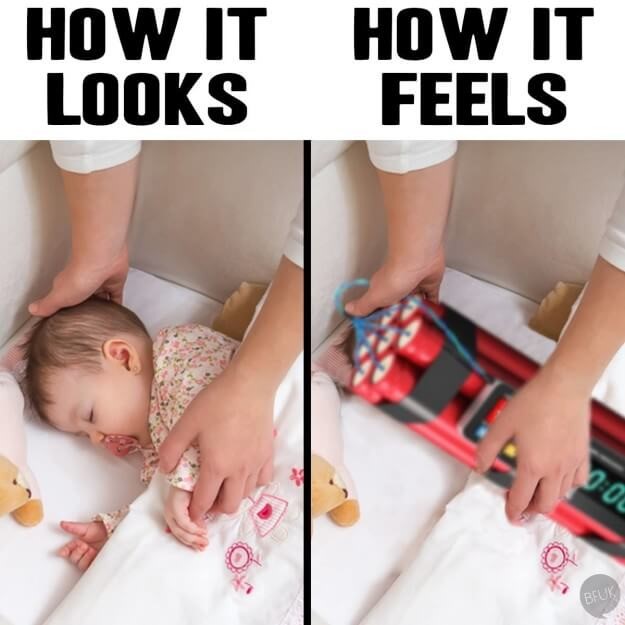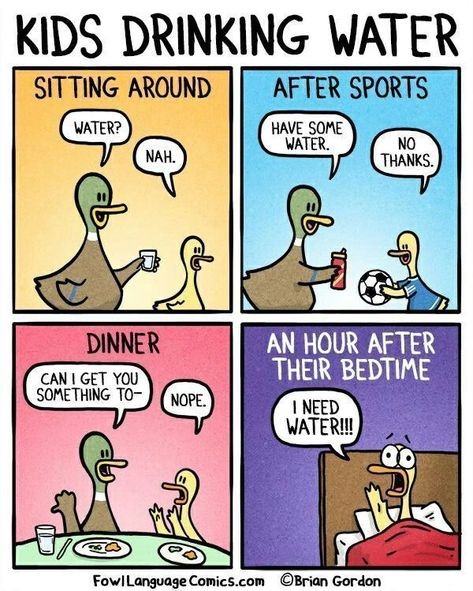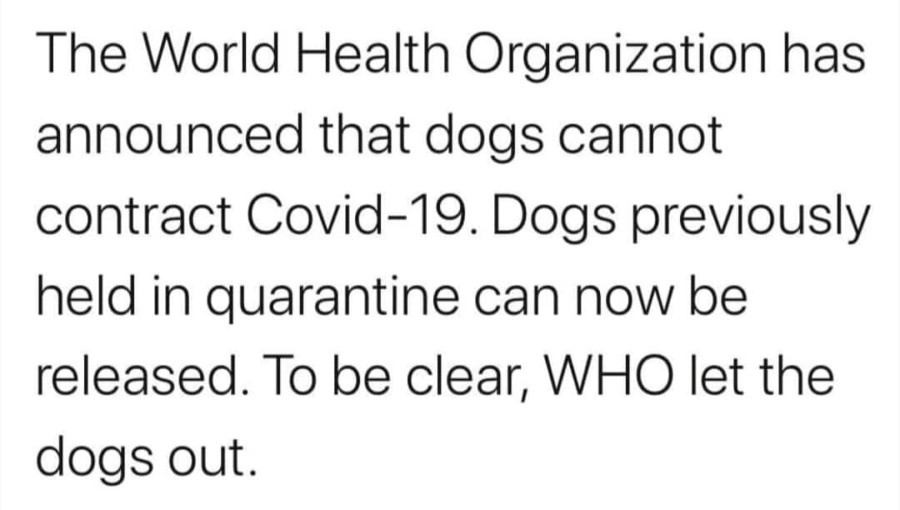Especially these days, it can seem inappropriate. I know. When things are really crappy, dark humor can seem disrespectful. But it still works for me…
Back when I worked in an office, Dilbert got me through.
Favorites:


What got me through when my kids were younger:


My baby actually woke up once as I was silently leaving her room, at the sound of my ankle clicking. You know, the sound a joint can make? Not loud! Enough to wake that one up. Rrrrr….

What got me through 2020:


Using humor to deal with stress is well-documented. It’s practiced “formally” from laughter yoga to hospital clowning.
The Mayo Clinic (link to full article at the end) explains the biology behind laughter and stress relief:
Short-term benefits of laughter
- Stimulate many organs. Laughter enhances your intake of oxygen-rich air, stimulates your heart, lungs and muscles, and increases the endorphins that are released by your brain.
- Activate and relieve your stress response. A rollicking laugh fires up and then cools down your stress response, and it can increase and then decrease your heart rate and blood pressure. The result? A good, relaxed feeling.
- Soothe tension. Laughter can also stimulate circulation and aid muscle relaxation, both of which can help reduce some of the physical symptoms of stress.
Long-term effects of laughter
- Improve your immune system. Negative thoughts manifest into chemical reactions that can affect your body by bringing more stress into your system and decreasing your immunity. By contrast, positive thoughts can actually release neuropeptides that help fight stress and potentially more-serious illnesses.
- Relieve pain. Laughter may ease pain by causing the body to produce its own natural painkillers.
- Increase personal satisfaction. Laughter can also make it easier to cope with difficult situations. It also helps you connect with other people.
- Improve your mood. Many people experience depression, sometimes due to chronic illnesses. Laughter can help lessen your depression and anxiety and may make you feel happier.
Interestingly enough, when you’re stressed and down and don’t feel like laughing, even a forced smile or laugh can help. The easiest way to make yourself laugh is to be around people who are laughing, or even watch a sitcom or standup where the audience laughs. Because of mirroring, laughter is contagious. We laugh more easily when others are laughing.
Comment or reply – what gets you laughing and helps you through tough times?
Resources:
- Mayo Clinic article on humor and stress
- University of St. Augustine on laughter + 10 ideas to relive stress
- HelpGuide artilce – laughter is the best medicine



Great post, Shlomit. Loved the examples – they put a smile on my face 🙂
Agree with you, having fun is so valuable. It triggers something in you that makes you stronger.
Laughing something away though – I try to be aware of that. (though it happens sometimes…) Thx for the reminder
OMG – so loved reading this and your examples today. Made me laugh, and now I feel even better – thank you. Love the braces ad too. 🤣
It’s a brilliant ad! 😀
I love to laugh – thanks for this!! Keep laughing yourself, Shlomit.
Or laughing AT myself… 😉 Also an option!
Funny! Yes and it shifts your state. So awesome a practice.
Love it, thanks for making me laugh Shlomit. I too enjoy bringing levity into situations. Sometimes people don’t get my sense of humor — but I’ve learned to read the room better. For me, introducing levity is never something I can orchestrate in advance, it’s always spur of the moment….
I love looking up autocorrect fails in cell phone conversations. 10-15 minutes and I’m belly laughing!
Good one! I used to read those, too, and somehow stopped… They’re hilarious! Thanks for the reminder 🙂
I seek out laughter, for sure. It is a great stress reliever! I tend to find the humor in daily life, in general.
Thank you for the laughs! And yes, I agree–laughter is like the reset button for any negative or challenging state of mind.
Love the duck one – OMG! My daughter is a ham and she is the one that gets me laughing the most.
LOVE this post, Shlomit, I was definitely cracking up, and humor sure is an escape for me.